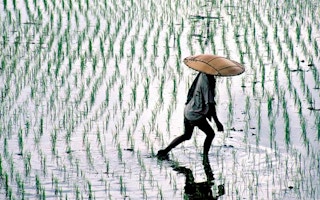The International Rice Research Institute (IRRI) has appointed Singaporean Leo Chen Ian as the new executive director of the IRRI Fund, Singapore.
IRRI Fund provides support for rice research to reduce poverty and hunger in Asia and around the world. Rice is the staple food for more than half of the world’s population, and modernising the rice industry is generally recognised as one of the most effective weapons against poverty and hunger.
According to one agricultural research group, the Global Rice Science Partnership, by 2035 rice research could boost supplies enough to reduce anticipated rice price increases by an average of at least 13 per cent, lift 150 million people out of poverty, and significantly reduce greenhouse gas emissions.
“I’m really looking forward to showing philanthropists in Singapore how support for rice research can have a major impact on the lives of the poor, and help ensure enough rice for future generations without damaging the environment,” said Mr Leo.
International focus on rice and food security has been increasing in the past few years as rising food costs have threatened to push millions more people into poverty and hunger. Record rice prices of $1,080 a tonne in 2008 caused food riots in places and spurred some countries to hoard local supplies rather than export them.
A study released by the UN’s Food and Agriculture Organisation (FAO) last August reported that rice, 90 per cent of which is grown on small farms in Asia, is threatened by climate change. The report’s authors said that rising temperatures in the past 25 years have already cut rice yields at several key growing locations by 10-20 per cent, and that research on rice varieties and production was essential.
Throughout Asia governments and companies are scrambling to ensure the future supply of rice. In Vietnam, pharmaceutical giant Bayer is partnering with the Mekong Rice Research Institute to develop sustainable rice farming practises. In the Philippines, an IRRI project is underway to collect different rice varieties for a stored seed bank in Norway’s permafrost.
At the IRRI Fund in Singapore, Mr. Leo will build support for IRRI and facilitate collaboration with educational and research organisations such as the National University of Singapore and Temasek Life Sciences Laboratory.
IRRI’s development director Duncan Macintosh said, “We’re very pleased Ian has agreed to join the IRRI Fund because of his experience with philanthropy in Asia and his strong educational background in science.”
Mr Leo plans to bring his philanthropy experience – he is former executive director of the Centre for Asian Philanthropy – to steer Singapore’s philanthropic efforts in a new direction. “Traditional philanthropy has a long, generous history in Singapore, but philanthropy focused on science and important strategic goals like food security is relatively new, and it’s time Singapore played a leading role in this area,” he said.








